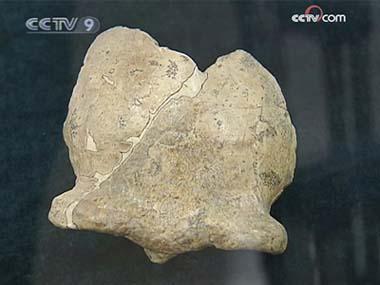Source: CCTV.com
05-07-2009 09:19
A group of China's top scientists are launching a new excavation at the Peking Man Site at Zhoukoudian, some 50 kilometers southwest of Beijing. They plan to explore and restore the west side of the cave system.
The excavation work will be done from May to July. It will cover about an area of 20 square meters on the west side of the cave system. The main purpose is to restore and strengthen that part of the site.
According to the Palaeoanthropology Institute of the Chinese Academy of Sciences, the excavation will also shed new light on the geological structure of the site. The samples collected will supplement the collection of the Zhoukoudian Museum.
 |
| A group of China's top scientists are launching a new excavation at the Peking Man Site at Zhoukoudian, some 50 kilometers southwest of Beijing. |
Zhoukoudian is a cave system near Beijing that has yielded many archaeological discoveries. Perhaps the most famous is one of the first specimens of Homo erectus, dubbed Peking Man, who inhabited this cave approximately 200-thousand to 750-thousand years ago. The Peking Man Site was discovered in 1921. The first excavation produced two human teeth, which were identified as belonging to a previously unknown species. Extensive excavations followed.
Peking Man site is one of the most comprehensively and systematically studied locations of Homo erectus. It also provides more precise scientific data for the study of the evolution, behavior, and the paleoenvironment of Homo erectus than contemporary African and European sites.
Many fossils of mammals, artifacts, and ashes were also found at the site. They provide excellent material for the study of human evolution and prehistory.
Click for more news in Culture Express>>
Editor:Zhao Yanchen
